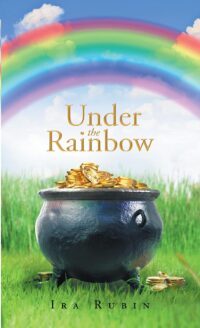Title: Under the Rainbow
Author: Ira Rubin
Publisher: Newman Springs Publishing
ISBN: 978-1-63881-516-7
Genre: Poetry
Pages: 108
Reviewed by: Allison Walker
Hollywood Book Reviews
Under the Rainbow is a remarkable collection of poetry by Ira Rubin which explores the depth of human emotions, captures the beauty and restlessness of nature, and contemplates the incomprehensible complexities of life. With his expressive and evocative verse, Rubin invites readers on a journey of self-reflection by exploring themes of love, loss, resilience, and the search for meaning.
One of Rubin’s greatest strengths is his ability to capture nature within his writing. Through his vivid descriptions, readers find beautiful landscapes. Rubin reveals the interconnectedness between humanity and the natural world, reminding us of our inherent relationship with nature even as he explores human emotion and the uniqueness of our personal experiences. The themes of resilience and hope continue throughout Under the Rainbow. Even in his bleakest moments, Rubin reminds us of the resilience of the human spirit and our ability to overcome the storm raging within us.
One of the more mystifying aspects of the collection is the title. can be interpreted as a symbol of luck, as in the myth of the pot of gold under the rainbow. Rainbows can also signify the end of something disastrous, hope and optimism, as in the end of a storm. Interestingly, when Rubin mentions rainbows in his poems, they are not joyous. “The rainbow hurts my eyes,” he writes in the poem “Freedom,” also titled “The Door Is Open Wide.” In another poem, “What Is to Be?” Rubin writes, “We see no more the beauty of Life’s rainbow.”
The repetition-like poem, “The Question,” is a startling break from Rubin’s usual style. If a pop artist put this poem to music, it would make perfect sense. The piece is comprised of two-line stanzas, a striking observation followed by a question to “My Love”: “The stars are many that go uncounted; My Love, how much do you love me?”
As a poet, Rubin’s attention to detail is precise. Every capitalization, every line, and every stanza serves a purpose. Under the Rainbow is meticulously crafted. The language uses common imagery from Christian mythology but is overall accessible to a wide audience. After all, who has not experienced heartbreak or self-doubt? Rubin tackles such great questions as the meaning of life, passage of time, and search for personal identity. His thought-provoking poetry will inspire readers to introspection and will linger with them long after they have laid this collection down.

